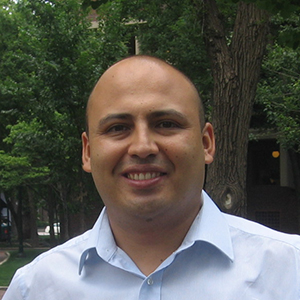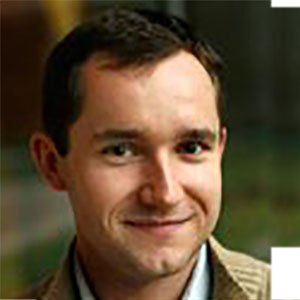Faculty

Ernesto Dal Bó
Political Economics, Influence and Corruption
Omri Even-Tov
Financial Accounting, Corporate Debt
Paul Gertler
Impact Evaluation, Public Economics
Andrea Gorbatai
Knowledge Diffusion, Information Sharing
Jose Guajardo
Operations Analytics, Operations-Marketing Interface
Przemyslaw Jeziorski
Marketing Analytics, Mobile Marketing
Zsolt Katona
Network Analytics, Social Media and Mobile Marketing
Jonathan Kolstad
Healthcare Analytics, Public Economics
Yaniv Konchitchki
Macro-Accounting, Financial Information
Alastair Lawrence
Accounting, Financial Reporting Analytics
Ming Leung
HR Analytics, Labor Markets
Ross Levine
Financial Regulation, Entrepreneurship
Abhishek Nagaraj
Information Economics, Digital Mapping
Hoai-Luu Q. Nguyen
Consumer Credit Analysis, Banking
Minjung Park
Marketing Analytics, Microeconometrics
Panos Patatoukas
Financial Statement Analysis, Economic forecasting
Richard Sloan
Earning Management, Financial Accounting
Sameer B. Srivastava
Organizational Sociology, Computational Linguistics
Toby Stuart
Entrepreneurship, Innovation, Network Analysis
Mathijs de Vaan
Social Network Analysis, Economic Sociology
Johan Walden
Networks in Capital Markets
Reed Walker
Environmental Economics, Public Economics
Grants and Fellowships

The Fisher Center for Business Analytics has a limited amount of funding available for research proposals from Haas faculty members, and invites you to submit a proposal. Priority will be given to junior faculty and to proposals that are willing to share data or otherwise collaborate with other interested Haas faculty members. This year the Center seeks to award $50,000.
Fellowships
Through the support of the Ryoichi Sasakawa Foundation, the Center administers Fellowships to PhD students applying analytics in their doctoral research.
Grants
(closed for the year)
Topic
Research that applies analytics to business – broadly defined as:
- Addressing a business problem
- By using empirical methods to analyze data of non-trivial scale or
- Constructing novel explanatory variables using analytics (e.g. text mining)
- Applying analytics to integrate previously disparate data sets in novel ways.
- Proposal may be limited to data collection for future research – priority given to researchers willing to share data
Funding Availability
Funds will be transferred to individual faculty research accounts by June 2017 to be used before June 30, 2018.
Grants Should Include:
- A 2-3 page description of the research your project
- Recent CV with related papers highlighted
- Project budget (maximum $15,000)
Reporting Requirements
Grant recipients are required to
- Produce a progress report or working paper before June 30, 2018
- Present their work at a seminar upon request
Submission
Email proposals to:
businessanalytics@berkeley.edu
Conferences and Seminars

The Center sponsors conferences that invite scholars from around the world to visit Berkeley and share their research by applying analytics to business challenges. The Center also hosts a cross-disciplinary research seminar series for faculty and PhD students. Alternating between Haas faculty and industry data scientists, speakers introduce an algorithm in a particular problem domain and then engage the audience in a discussion of methodology, seeking new applications in different contexts.
Conferences
- Summer Institute in Competitive Strategy (SCIS) June 12 – June 17
Seminars
Marketplace Optimization Data Science at Uber
Thursday May 11, 2017: 11AM – 12:30PM, Room C330
Speaker:
Connan Snider Senior Data Scientist at Uber and was previously an Assistant Professor of Economics at UCLA.
Abstract: The Marketplace Optimization team at Uber builds the intelligent systems that determine rider and driver pricing and incentives, the dispatch of drivers to riders, and the matching of Pool passengers with each other, among others. Data scientists, with diverse backgrounds in Economics, Operations Research, Statistics, and Computer Science, are constantly confronting challenging substantive problems associated with incentive design on a two(+) sided platform and the design of experiments intended to inform it. In addition, there are unique challenges associated with working so close to actual product. Namely, data scientists have to work closely with software engineers and are forced to think about engineering constraints like latency and scalability.
Research Computing

Haas Computing Support
Data Management and Preprocessing
Secure Data Hosting
Cloud Provisioning
Campus Computing Support
Exceed
Savio Cluster
When necessary, navigating campus administration to negotiate Non-Disclosure Agreements, Data Use Agreements, Publication, and Intellectual Property






























